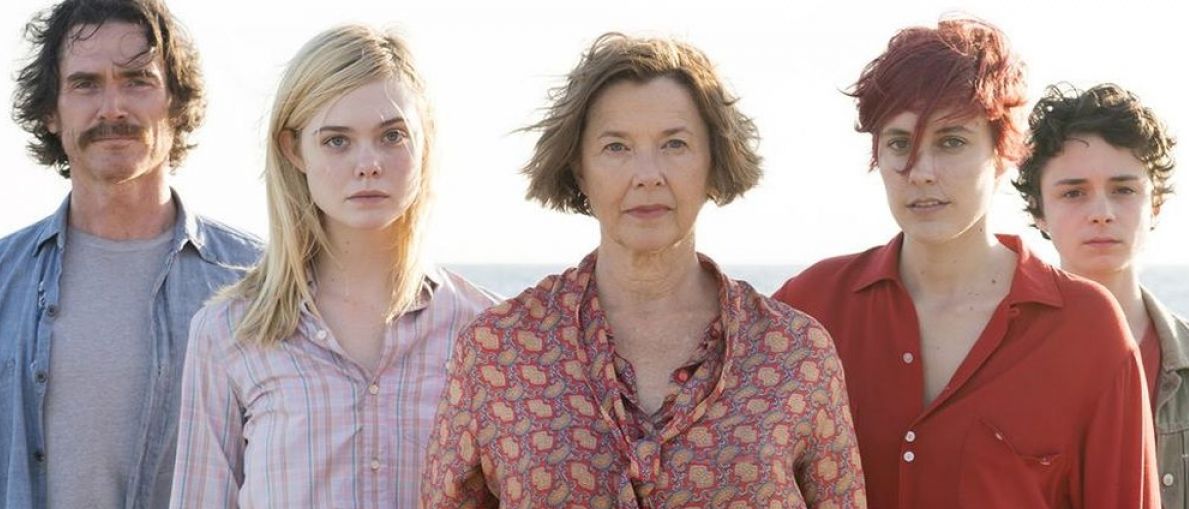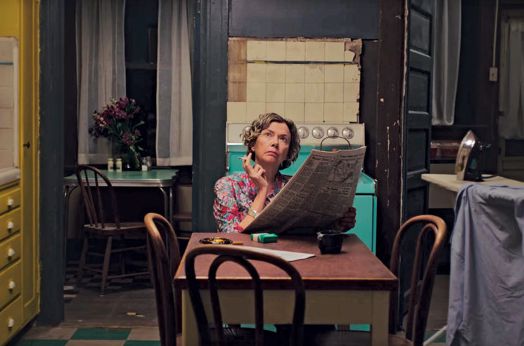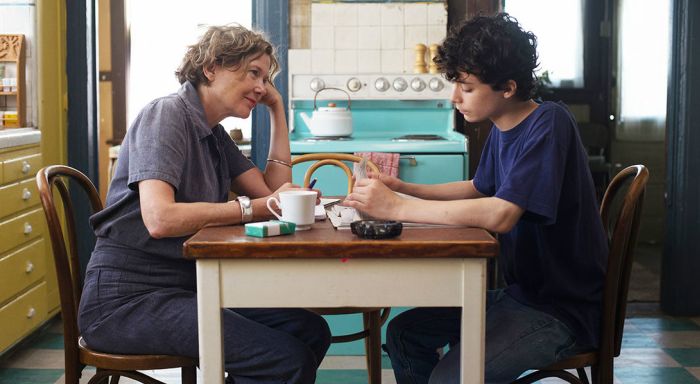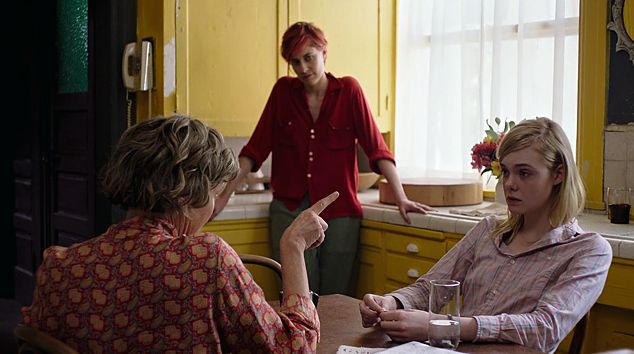
20th Century Women: Mike Mills feministic love letter to the woman he fully didn’t know
 Led by Annette Benning’s delicious hallmark performance, this visually delightful follow up to ‘Beginners’ ultimately succumbs to more introspective questions than the answers it seeks
Led by Annette Benning’s delicious hallmark performance, this visually delightful follow up to ‘Beginners’ ultimately succumbs to more introspective questions than the answers it seeks
During the summer of 1979, a Santa Barbara single mom and boardinghouse landlord, Dorethea (Annette Bening) decides the best way she can parent her teenage son, Jamie (Lucas Jade Zumann), is to recruit her young tenants — a quirky self-aware freebird photographer, Abbie (Greta Gerwig), a mellow puppy dog eyed handyman, William (Billy Crudup) and her son’s sweet but broken best friend Julie (Elle Fanning) — to serve as role models in a changing world.
Mike Mills, who built this movie on the premise of displaying his memory and affection of his mother, demonstrates early on that he intends on delivering an appreciative love calling card for her but it wasn’t on the same inherent level that he established with the subject of his father in his stronger previous 2010 film — Beginners. In that film, he showcased an endearing personal “autobiofictional” essay much like 20th Century Women, but did it with more careful conviction through the assured eyes of his main character played by Ewan McGregor (portraying a fictionalized version of Mills). He witnesses his elderly father (played by Christopher Plummer, in an Academy Award winning performance) coming out of the closet as a homosexual at the virile age of 76 firsthand. What Beginners got right that 20th Century Women did not, was a time capture of a tender and more interesting film that demonstrated retroactively just how Mills understood his father’s desires and personal motives. Told in an engaging, smart, graphic narrative that seamlessly blended with Mills’ personal sense of quirky sentimental humor, Beginners allowed for Christopher Plummer’s performance to come alive as his character was coming out. In contrast with Benning’s Dorathea as the centerpiece of this alternative family dynamic, none of that ego or dimensionality was given to her with the same personal descriptive treatment.

Annette Benning gives us another triumphant lead performance that fills in whatever blanks of Dorathea that Mills can’t give her himself. Through Benning’s essence, Dorathea is a Birkenstock wearing, Volkswagen bug driving, Den Mother with an endless arsenal of Salem cigarettes, encapsulating the character to endearing parental hysterics. Benning is so natural in this role, that it’s almost a disservice. As Dorathea, we are never fully allowed to search the character’s persona under the same family soul searching tropes that Mills has established in prior films. Dorathea is a mixed bag. She is educated, but stuck her in ways, independent but clingy, fierce but repressively sad. She drives the action from scene to scene but we are always standing next to her. Never at any moment during the proceedings are we walking in her shoes and thus shortchanged by the most compelling aspect offered by the film: Dorathea herself. This film never gives us a thematic resolution with its characters or story. Mills tells us what happens (by way of flash forward montage narration) to everyone before we are ever allowed to discover them, cast our own judgments about them and curious to continue chasing them. Any mystery or character development is stunted and thus we are robbed of any genuine surprise from its inhabitants.
The film is served in a conjoined dual perspective by way of Dorathea’s son Jamie. Jamie’s voice and point of view is intermixed with Dorathea’s first person testimonial where one is trying to figure out the other. Jamie, played by newcomer Lucas Jade Zumann, is interesting in his own skin. He finds the right mix of tumultuous Black Flagg angst, with a glimmer of good natured, artistic skater boy cynicism who gets beat up for liking the Talking Heads. Jamie is simmering with sexual frustration for his unrequited love towards his best friend Julie. Tall, blonde and sexually dangerous, Julie climbs up every day to Jamie’s room to spend the night and just to talk. Being his friend is all she knows and sleeping innocently in the same bed is all she gives him. He wants more but scornfully settles for less because it’s better than nothing. Keep your friends close and Elle Fanning in your bed closer.

Jamie’s main irritation and driving force in the film, however, is trying to figure out exactly who his mother is. Dorethea, ironically, is also trying figure him out, but they can’t seem to get on the same page. She recruits the help of crimson haired, blunt cut, Abbie, but that seems to be an even worse idea. When Abbie gives Jamie the same feminism books that she has read, it makes Jamie sensitive to the women around him, in particular Julie. To Dorathea’s dismayed reaction to it makes him too sensitive and the feminine mystique is no longer mysterious, it’s Jamie’s adopted condition.
20th Century Woman has a lot of visual tension mixed with a reoccurring theme of clashing emotional discord. The film’s opening scene shows an overhead shot of the idyllic Santa Barbara beach oceanfront and then cuts to Dorathea’s brown 70’s generic hatchback getting caught on fire in the parking lot during a grocery store trip. Compositional foreground of every scene is presented with bland, grey-milk colors, that are supported in the background by vibrant splashes of red and yellow. Even the film’s historical changing-of-the-times subtext knocks heads with Dorathea’s no-nonsense classicist aura versus 70’s punk misunderstood raggedness represented by Jamie and Abbie. The overarching metaphor is the last vestige of Californian individual communal bohemia ideals decaying making way for a new era of 80’s over commercialized, consumer uniformity and ubiquitous excess.

The tension and dramaturgy of 20th Century Women bleeds through these characters, however, for all of this film’s energetic voice, it really started to flatline towards the end. Everything that felt fresh, cute and stimulating in the beginning and second act started to wane, becoming too complacent in its self-reverence and affection of its main characters. The more 20th Century Women unfolded through its introspection, it became obvious that Mills’ commentary could never truly answer itself fully from the very thing he tried to depict: can a faithful life adaption of the main character as secondary subject be fully expressed? That is when his movie suffers the most because Mills doesn’t have the answers leading up to his conclusion of parental appreciation through dramatic investigation. It is a shame because Dorathea’s adaptation is wonderfully treated and tragically flawed at the same time. We are left to our own judgments but maybe that’s the point — that we truly never know our parents. Benning’s portrayal was so enjoyably terse and honest, I wanted to get to know all of her and I couldn’t. Maybe that is what this films’ legacy will become — a burning conundrum that leaves me with a personal debate that makes me question the movie’s ultimate intent by conducting my own self-imposed interpretation, like Jamie did with Dorathea and ultimately like Mike Mills did with his own mother.